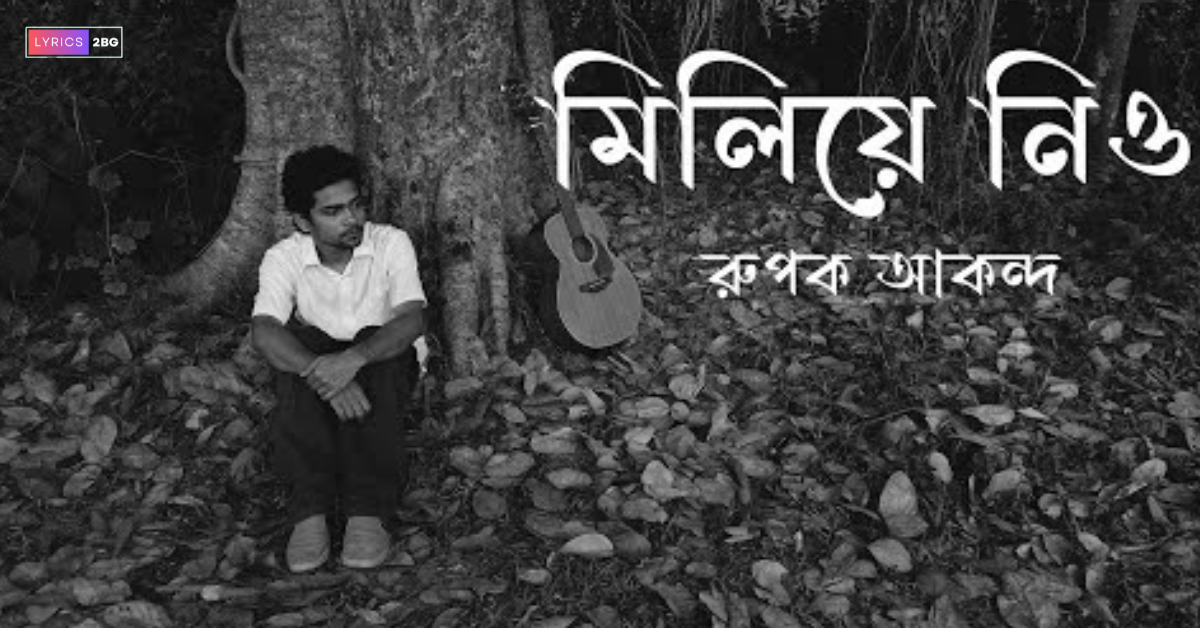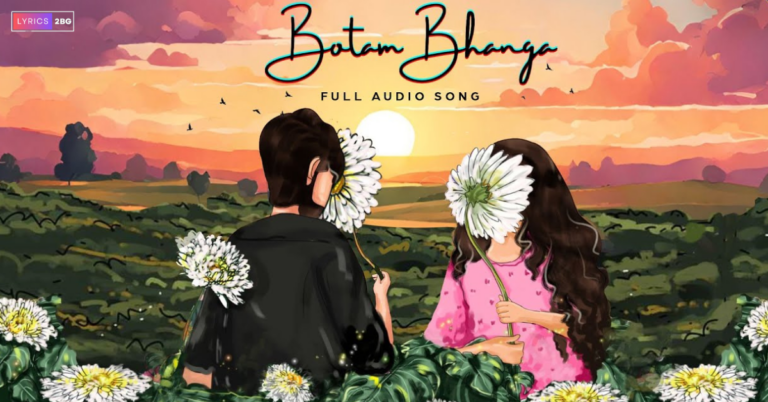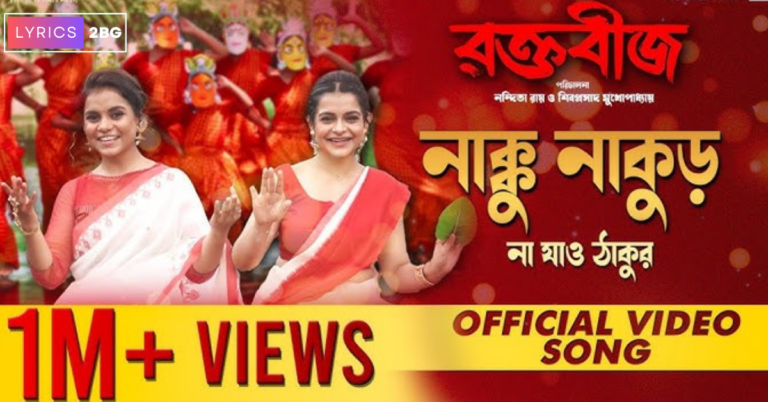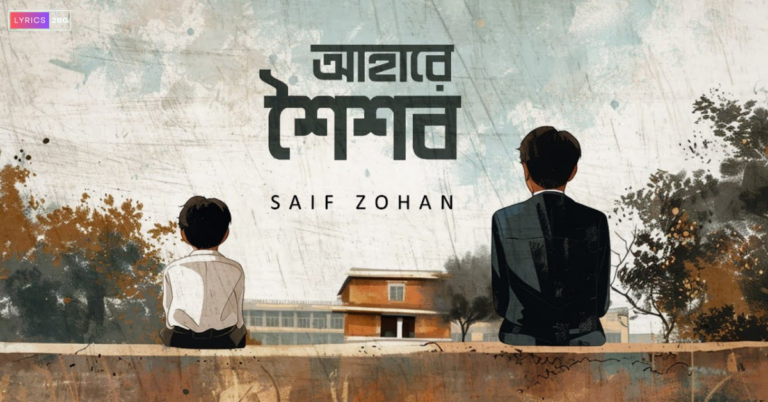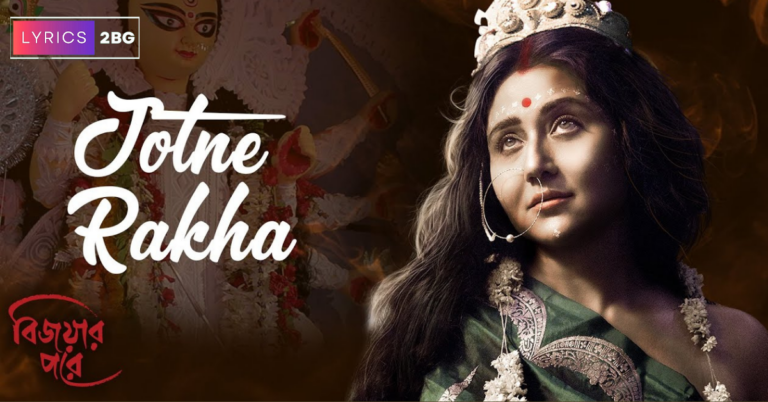Miliye Nio Lyrics | মিলিয়ে নিও | Rupok Akondo
Miliye Nio Lyrics
তোমার জন্য একাকী রাত
হয়ে যাক সব বৃষ্টিস্নাত
ভিজে যাক আমার শহর
হোক শীতলীয় শোক
তুমি এসে মিলিয়ে নিও
আমার বুকে ঠিক কত টা দোজখ।
জঞ্জালের এই শহর জুড়ে
যে যার মত একা
অবসরে জানালায় চোখ
শুধুই আকাশ দেখা ।।
আমার একা চিরস্থায়ী হোক
তুমি এসে মিলিয়ে নিও
আমার বুকে ঠিক কত টা দোজখ।
মনের মানুষ মনেই থাকুক
যাচ্ছো যাও চলে
আসছে মাঘে খুঁজবো তোমায়
কুয়াশার চাদরে।
তোমার প্রস্থানে কাটবে না এই শোক
তুমি এসে মিলিয়ে নিও
আমার বুকে ঠিক কত টা দোজখ
Meaning of Miliye Nio Lyrics
Miliye Nio lyrics captures a deep sense of solitude and longing. It paints a vivid picture of a rainy night in a city filled with melancholy, where the speaker yearns for connection amid overwhelming isolation. The rain symbolizes both cleansing and sadness, suggesting a longing for renewal while highlighting the pervasive sorrow that lingers in the urban landscape.
Miliye Nio lyrics opening lines, the speaker expresses a desire for the rain to wash over the city, evoking an atmosphere that feels both refreshing and sorrowful. This duality represents the complexities of human emotion, where moments of beauty are often intertwined with pain. The “shitaliy shok” (cool sorrow) illustrates how sadness can feel soothing yet suffocating at the same time.

As the song progresses, the imagery of individuals lost in their own worlds becomes prominent. The city, described as filled with “janjal” (garbage), mirrors the emotional clutter in the speaker’s heart. People are depicted as solitary figures gazing out of their windows, merely observing the sky, reflecting a universal experience of isolation in a crowded place. This visual reinforces the theme of loneliness—despite the presence of others, true connection feels elusive.
The refrain repeats the plea for a beloved to come and merge with the speaker’s pain, a powerful metaphor for love and companionship. The repeated request to understand the “dukh” (pain) residing in the speaker’s heart emphasizes the idea that sharing sorrow can alleviate it. The notion of “dhojkh” (hell) signifies the depth of anguish experienced, suggesting that without this connection, the suffering feels insurmountable.
Miliye Nio lyrics further explores the theme of longing through the mention of seasons, particularly the arrival of “Magh,” a time associated with winter and fog. The speaker hints at a hopeful search for the beloved amidst the coldness of winter, where fog can represent obscured vision or understanding. The imagery of searching for a lost love amidst a foggy backdrop symbolizes the uncertainty of reconnecting with someone who has left.

Miliye Nio lyrics encapsulates a poignant struggle between hope and despair. The speaker’s resolve to seek the beloved even after their departure signifies a tenacious spirit, demonstrating how love can persist despite absence. The intertwining of personal emotion with the broader experience of city life creates a relatable narrative, inviting listeners to reflect on their own experiences of love, loss, and the yearning for connection.
Through rich imagery and emotive language, the song effectively communicates the complexities of human relationships and the deep emotional landscapes we navigate. The profound sense of loneliness amidst the backdrop of a bustling city resonates with many, encapsulating a universal longing for companionship and understanding in a world that often feels indifferent. The singer’s desire for the beloved to comprehend the weight of their sorrow speaks to a deeper need for empathy and shared experience in navigating life’s challenges.
In conclusion, “Tomar Jonno Ekaki Raat” serves as a heartfelt exploration of solitude, love, and the search for meaning amidst emotional turmoil. It resonates with anyone who has experienced the bittersweet nature of love and longing, inviting a reflective contemplation on the connections that define our lives.
Song: Miliye Nio
Lyrics , Tune , Music & Vocal – Rupok Akondo
Cinematographer – Anand Sarker

